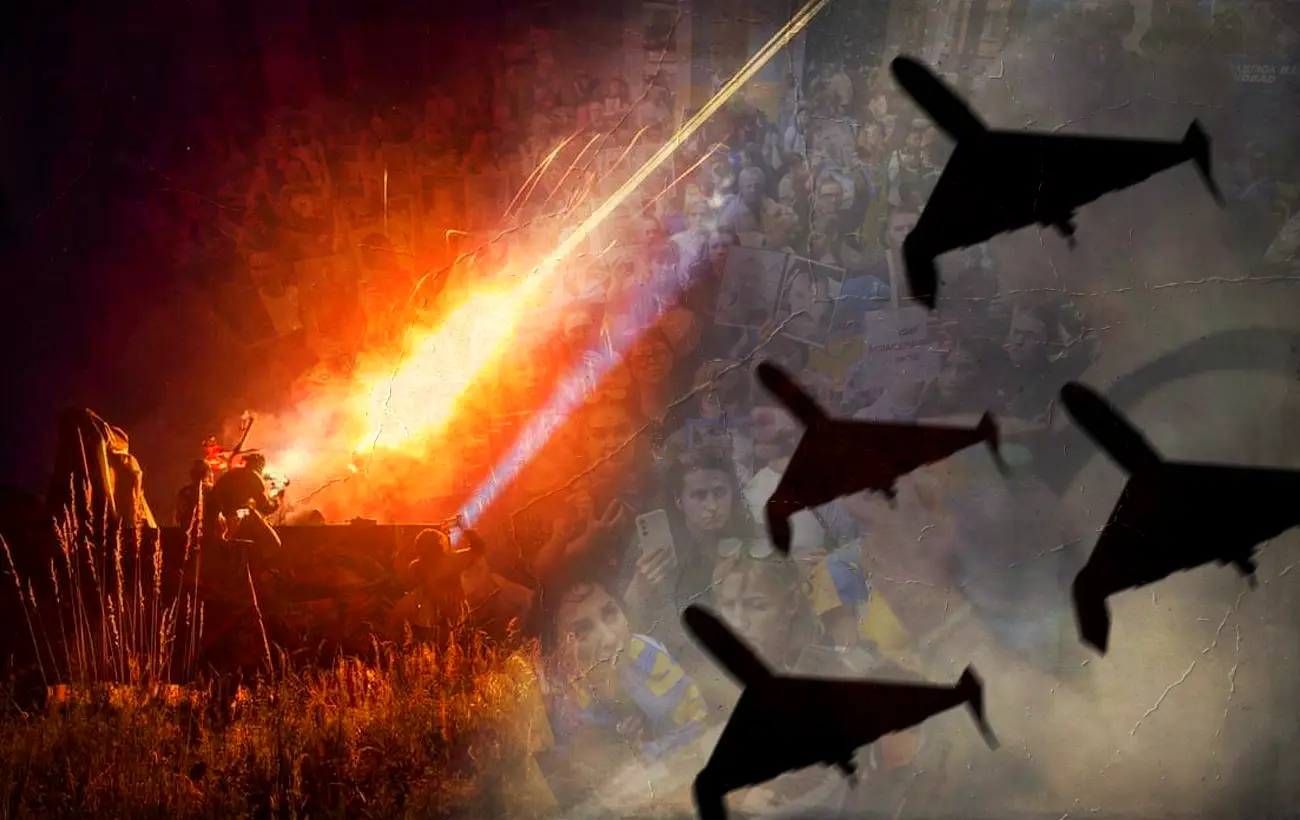It was a night when the sky over Ukraine no longer carried any promise - only a droning, a whistling, a death from afar. Over 350 Russian drones raced through the darkness, launched by a regime that has long since lost all sense of proportion, perhaps even the very language of reason. It was the most massive drone attack since the beginning of the war - a war that has now raged longer than many wars before - and yet, with every new wave of attacks, it seems a new dimension of despair is being torn open.
From Friday to Sunday, it was reportedly over 900 drones, plus missiles, cruise missiles, ballistic projectiles. The world watches weather forecasts, stock tickers, election analyses - but in Ukraine, they count nights in impacts and mornings in rubble. Ukrainian President Volodymyr Zelenskyy calls it what it is: an escalation born from a sense of impunity. There is no longer any military logic to this, only political symbolism. Russia doesn’t want to hit targets - it wants to destroy, wear down, break apart.
And while the world freezes in front of the screen, Donald Trump types in capital letters: “Putin has gone absolutely CRAZY!” The President of the United States, who once prided himself on having a special relationship with Vladimir Putin, now appears surprised by the frenzy of his former counterpart. But what is this outburst? Indignation? Helplessness? Belated realization? Or just another chapter in the endless theater of his contradictions? Big words, but no action follows them. Sanctions? Announced. Done? Nothing. The fury dissipates somewhere between truth and tactic. Even Zelenskyy doesn’t escape criticism - he is said to be “doing his country no favors with his language.” As if words were more dangerous than explosives.
Meanwhile, Russia prepares its next step. A summer offensive. New troops, new targets. The front line stretches across a thousand kilometers - like a fracture through the East of Europe. And the drones are only the visible face of a war that has long since eaten its way into the structures, the souls, time itself.
And yet something strange happened amid the horror: a prisoner exchange. Three times, in three days. Over 1,000 people - soldiers, civilians, fighters. A flicker of humanity amid the noise of machines. Istanbul, not Brussels or Washington, was the place where it happened - not as hope, but as irony: while Europe keeps talking, the warring parties trade prisoners. A miracle or a distraction? No one knows. Only the numbers remain.
And Putin? Does not stay silent. His spokesman Dmitry Peskov declares the attacks a “response” to Ukrainian offensives - as if cities, schools, kindergartens were strategic targets. As if peace could be forced through noise. As if annihilation were a form of security policy.
The war has long since shed its masks. It’s no longer about land. No longer about history. No longer about gas pipelines, borders, or ethnicities. It’s about a man who has fallen - and a system that is falling with him. But with him, houses fall, voices fall, lives fall. Madness is no longer on the margins - it governs from above. And anyone watching should not ask whether to take sides - but whether they’ll still have the spine to do so tomorrow.
Because when the sky over Europe darkens again, it begins with a siren - and perhaps ends in silence.
